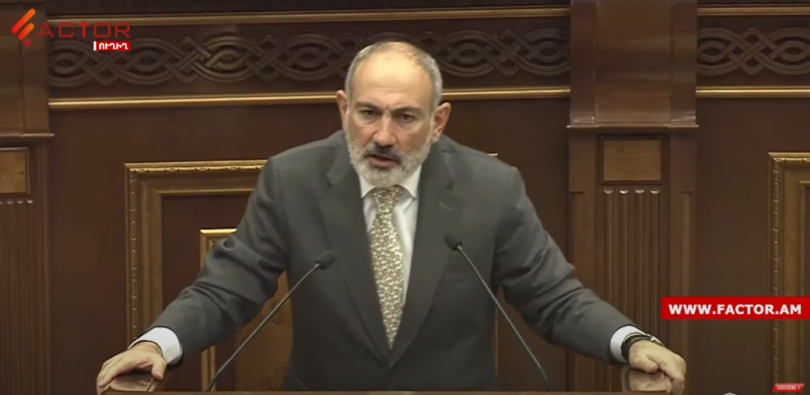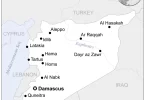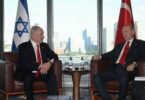It is a challenge for any ruling elite to maintain power. Some regimes attempt to manipulate democratic systems, which in the modern era bear little resemblance to the ideals envisioned by the ancient Greeks. The ruling gambit spans a spectrum, from classic repression to outright psychological manipulation. Entire families have remained in power for decades, including the Alievs of Azerbaijan. Haidar Aliev, the KGB chief in Baku in the 1960s, was succeeded by his son Ilham, who has been the country’s absolute ruler since the early 2000s and later made his wife Azerbaijan’s vice-president. Ilham Aliev was named ‘Corruption Person of the Year‘ for siphoning billions of dollars in hydrocarbon revenue for his family and close associates. Such a situation cannot persist without strict societal control and repression. Censorship in Azerbaijan is absolute, except when it comes to lambasting anything Armenian.
Alexander Lukashenko of Belarus has been in power continuously for over three decades, with some referring to him as Europe’s last dictator. Turkmenistan resembles Azerbaijan, with its dynastic leadership beginning with Gurbanguly Berdimuhamedov in 2006, followed by his son, Serdar, the current leader. Turkmenistan has been governed as a one-party state, with the president holding absolute power. The Berdimuhamedovs have cultivated a cult of personality, marked by statues, monuments, and other tributes to their leadership.
Since the breakup of the Soviet Union in 1991, Armenia has experienced a range of good and bad leaders, depending on one’s association with the country’s oligarchs. In 2018, Nikol Pashinyan rose to power on an anti-corruption platform. However, his ascent was, by his admission, primarily ushered in by Western NGOs. As Prime Minister, Pashinyan made critical decisions that weakened Armenia’s security, judicial, and military structures while attempting to distance the country from Russia. Under his watch, Armenia lost Nagorno-Karabakh to Azerbaijan, yet he was re-elected immediately after the war and has continued to engage with Western politicians and interests. Since taking power, particularly following the loss of Nagorno-Karabakh, Pashinyan has expanded the police force—according to a December 27, 2021 OSCE report—to nearly 30,000. In contrast, Armenia’s current military consists of about 57,500 active members.
Since 1991, the best and brightest individuals typically considered part of Armenia’s leadership class have been marginalized and ignored and have never gained enough influence to challenge any incumbent regime. While this may benefit those seeking to remain in power, it is against the state’s interests, especially when alternative expertise is needed in the face of existential threats.
Historically, it is rare for a leader of a country that has lost a war not to resign unilaterally. It is even rarer for such a leader to maintain popular support. The situation can only worsen if the leader engages in national denigration, which can be explained by one or both of the following hypotheses: (1) actively appeasing one’s enemies or patron or (2) gross ignorance and incompetence. An act of national embarrassment occurred in the Armenian Parliament on November 14, 2024. By denigrating his people, Pashinyan not only compromises any ongoing or future negotiations but is also being observed internationally since an essential function of a prime minister is to serve as the chief diplomat, engaging with foreign leaders, governments, and international organizations to promote their country’s interests, negotiate treaties and agreements, and maintain relationships. While Pashinyan and his ruling party are useful idiots in the eyes of Armenia’s enemies, Turkey and Azerbaijan, third-party observers will be confident in concluding that Armenia has questionable leadership and the Armenian population shows little reaction. Pashinyan and his party members periodically make such statements, but Pashinyan’s latest, on November 14, is exceptionally egregious. With either hypothesis, Pashinyan’s declaration undermines Armenian self-perception. On November 14, 2024, Pashinyan made a statement in the Armenian Parliament, part of which is translated as follows:
“If we live in Dilijan [a town in Armenia] and claim that we are from Van [an Armenian majority populated city in eastern Turkey, with no Armenians today], we are losing Dilijan this way. It creates an opening for claims that we are not natives, that these are old Turkish or Azerbaijani cities. In this way, we are losing our statehood.” The text in brackets is mine.
Pashinyan made this statement without challenge or accountability and with little societal impact. There was some laughter when he had to admit he was from the town of Ijevan, Armenia. Pashinyan’s statement is not only a false dichotomy, but each of its parts is also inaccurate.
Pashinyan would have us falsely believe that the town of Dilijan could only be considered an Armenian town if its inhabitants negated any lineage from other geographic origins. Pashinyan dismisses the universal concept of citizenship. All this is absurd. Dilijan would still be considered an Armenian town, even if all residents claimed lineage from Armenian genocide survivors or paleolithic farmers.
Pashinyan is prompting us to falsely assume that Dilijan may not have been an Armenian town before the 1915 Turkish genocide of the Armenians. He then makes a flawed conclusion, claiming that, based on his argument about genocide survivor lineage—evidenced by his listing of Armenian-populated cities in eastern Turkey—Armenia might be in danger of losing its statehood.
Pashinyan’s dichotomous assumptions are false, and his conclusion is a non sequitur: that for Armenia to retain its statehood, its residents must not have, or admit to, any alternative geographic lineage, specifically west of the Armenian border.
Armenia created an environment where regime repression and censorship have been replaced by the absence of a critical leadership class and a society devoid of agency for any effective protest. Authoritarian regimes would envy what Armenia appears to have achieved. This condition has allowed all Armenian regimes since 1991 to operate with little to no accountability.
Yerevan, Armenia
Author: David Davidian – Lecturer at the American University of Armenia. He has spent over a decade in technical intelligence analysis at major high technology firms. He resides in Yerevan, Armenia





